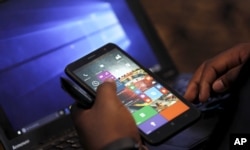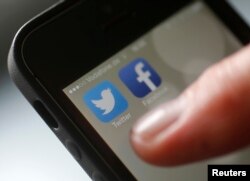More than a decade into the digital era, we know now that multitasking just doesn't work.
Study after study has proven that texting, driving, scanning our Twitter feeds all at once makes us less productive—not more.
In America, me and many of my friends and colleagues begin our days this way: we wake up and do the “rollover." That is, grab our cell phones off the nightstand or the floor or from under the pillow. Sometimes that’s because the alarm we set on our smartphones the night before is blaring.
In my case, I’m wondering what time it is (I can’t see the clock across the room without my glasses and finding my iPhone is easier than blindly feeling around for my specs). Friends who are parents tell me they look for a text message to see if their teenager got home safely — or tap the snooze button for 10 more minutes of sleep.
Thus begins a day dominated by digital devices; devices (iPads, smartphones, tablets, a laptop or personal computer at work) that many feel lost without; devices that promise to make us much more productive; devices that inevitably encourage multitasking, making us feel like we are getting a lot done and more quickly.
But the fact remains: we aren't.
Not multitasking, switching
“Your brain actually has a very limited capacity for simultaneous thought. We can only hold a little bit of information in mind at any single moment,” says Professor Earl K. Miller with the Picower Institute at the Massachusetts Institute of Technology in Boston.
Miller says we may think we are multitasking, but we aren’t. We are switching back and forth between tasks, he said, but we don’t realize that.
“But it happens, and it comes at a big cost…and every time there is a switch back to a task, your brain has to backtrack and figure out where it left off,” Miller said. “This takes time and causes errors.
Miller’s research is backed up over and over again.
The title of a study released earlier this year by the University of California at Irvine captures its findings.
In "Neurotics Can't Focus: An in situ Study of Online Multitasking in the Workplace," scientists studied 20 women and 20 men for 12 days in a large technology firm, all of whom used computers most of the day to complete their work.
They discovered that while multitasking is ineffective for nearly all of us — it’s the recalibrating our brains must do when we switch from one task to the next that taxes our brains — certain personalities are even more prone to distractions.
“We found that in information work, online focus is characterized by short durations, with only a median span of 40 seconds. Our results build on previous in situ descriptive studies of multitasking [5, 15] by suggesting that there may be an inherent trait of distractibility… Given all the potential distractions that digital media presents to information workers, our results suggest that inherent traits could make some people more susceptible to distractions.”
That’s a wordy way of saying if you tend towards being impulsive or neurotic or unable to handle a high load of stress, best you drop the multitasking and turn to mono-tasking, which is always the most efficient way to get the best work from your brain.
One task at a time
“There is no question that you are better, faster, and more productive when you focus on one task at a time,” according to Miller. “We evolved in an environment where there was much less information available. And any information might be critical. A rustling in the bush may mean a tiger is about to leap out.”
Turns out, our brains evolved to crave information because our survival depends on it.
Miller adds: “Our brains find new information rewarding. But they are ill-equipped to deal with our modern world where there is so much information.
Another study by Stanford University found that constant interruptions are the main culprit. Researchers who ran the study found that when so-called "high-tech jugglers" are bombarded with multiple streams of digital information, they cannot focus on what they were trying to accomplish.
“They couldn’t help thinking about the task they weren’t doing,” Eyal Ophir is quoted on a summary of the 2009 study posted on the Stanford University website. “The high multitaskers are always drawing from all the information in front of them. They can’t keep things separate in their minds.”
Ophir summarized the dilemma of the obssessive multitaskers this way:
“They couldn’t help thinking about the task they weren’t doing,” Ophir said. “The high multitaskers are always drawing from all the information in front of them. They can’t keep things separate in their minds.”
So the next time you are hammering away at work and a text message appears on your phone or a Twitter notification pops up on the corner of your computer screen, you’re better off putting your phone away and logging off your social media accounts.







